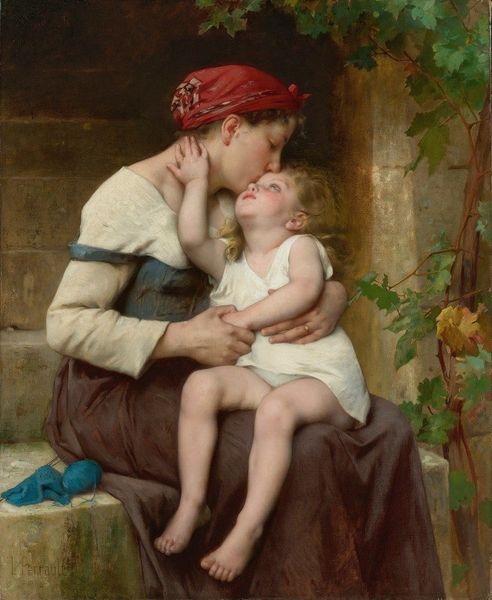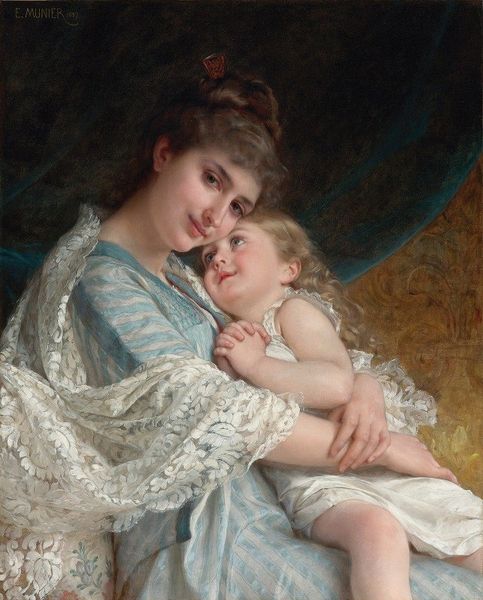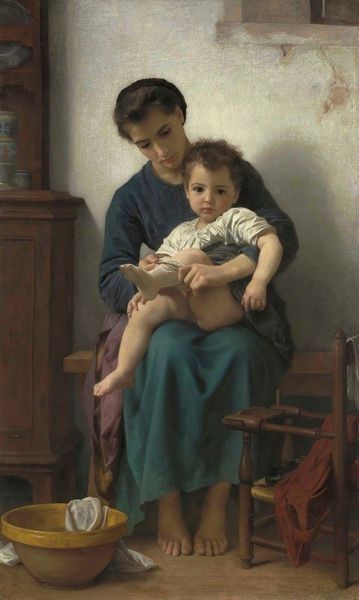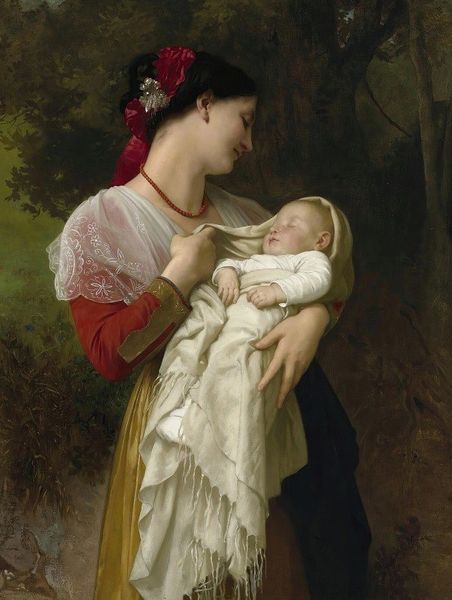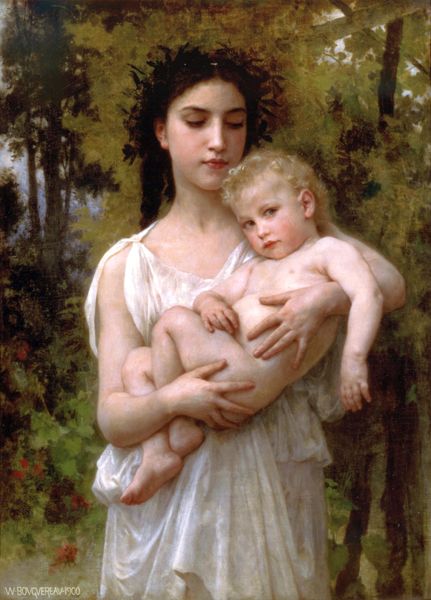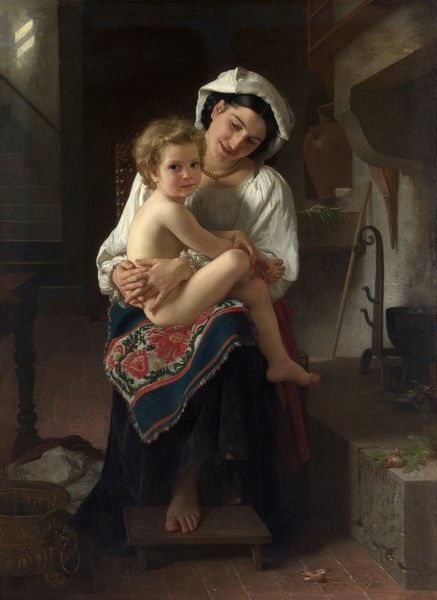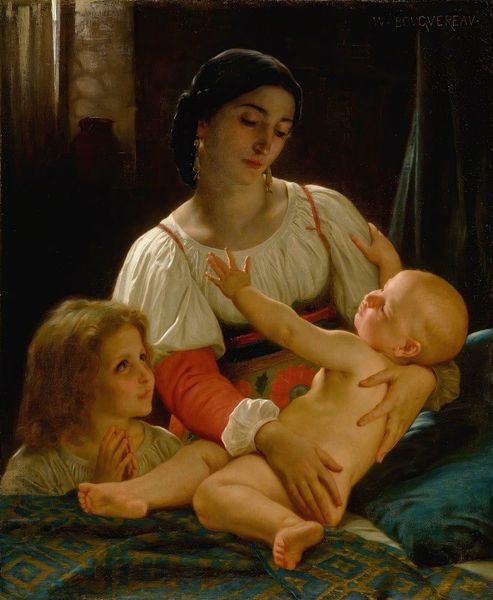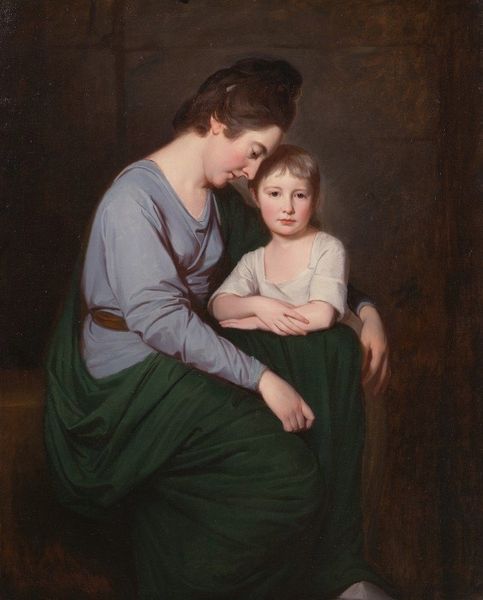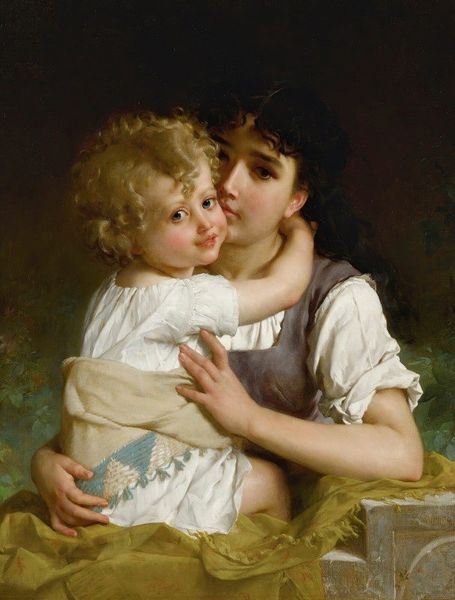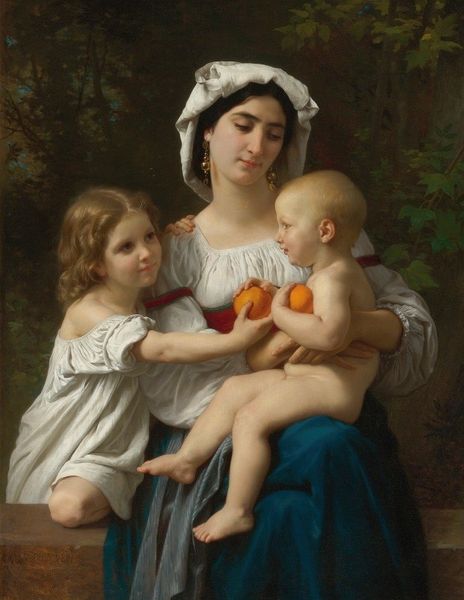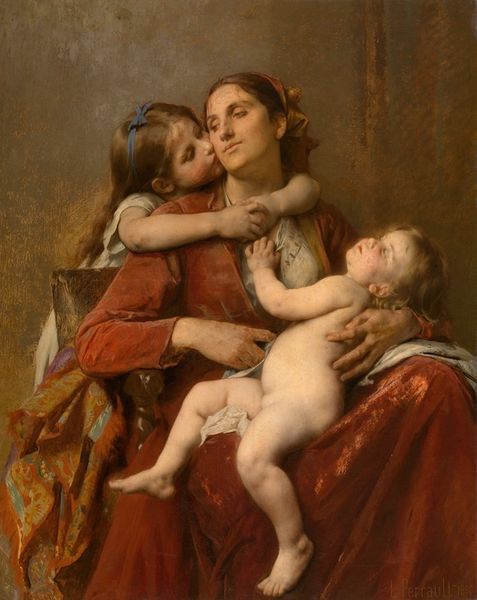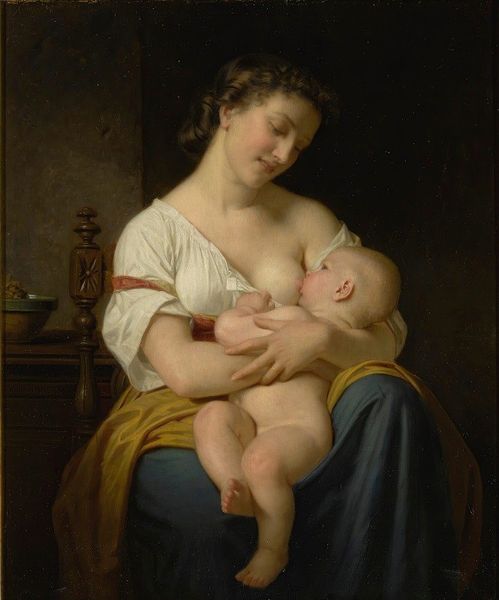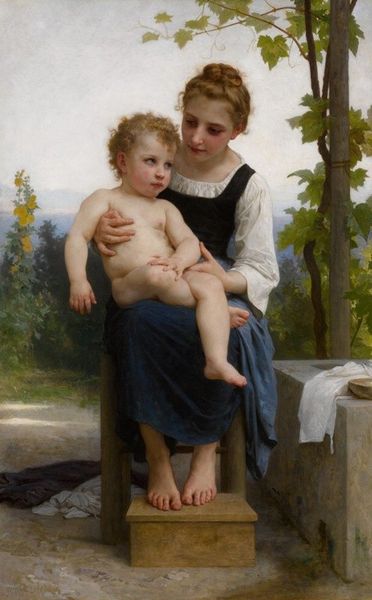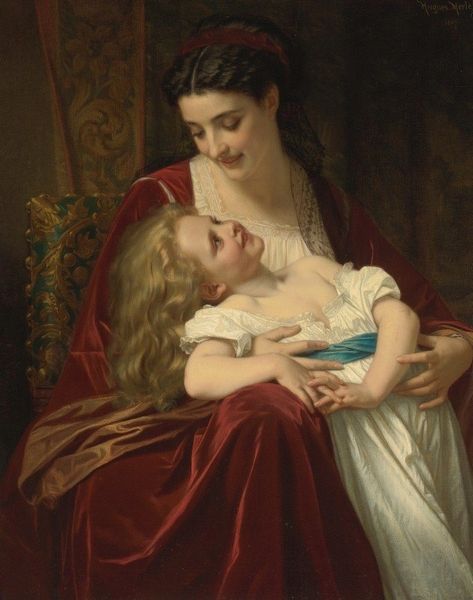
painting, oil-paint
#
portrait
#
figurative
#
painting
#
oil-paint
#
figuration
#
genre-painting
#
northern-renaissance
#
academic-art
#
realism
Copyright: Public Domain: Artvee
Editor: Here we have Hugues Merle's 1864 oil painting, "The First Thorns of Knowledge." It depicts a woman holding a young child with an alphabet learning card. There's a lovely sense of domesticity, yet the child seems… unhappy. What do you make of this painting? Curator: Well, considering Merle's focus on genre painting during the mid-19th century, this work highlights several key societal themes. What strikes you first about the *scene* itself? Where are they, would you imagine? Editor: It seems like a modest interior, perhaps a cottage. The window is dark. The figures are simply dressed. Curator: Precisely! Merle presents the intimate, private sphere, which grew in importance along with the middle class. However, he gives it a sharp title – "The First Thorns of Knowledge" – imbuing the simple moment with commentary. We must ask ourselves, does the piece present primary education as progress? Or something with "thorns"? Editor: I see what you mean. The child’s reluctance… is Merle suggesting compulsory education is, well, *compulsory*? Maybe without consideration for individual sensitivities? Curator: Exactly. And it's within that tension between sentimental depiction and subtle critique that Merle’s artistry and message reside. Do you see any of the markers of ‘Realism’ in the depiction of social classes in this piece? Editor: Well, this isn’t a grand historical subject, but a simple scene. And it does seem a world away from royal portraits. Curator: Precisely. The Realist movement favored everyday subjects and unidealized depictions. Considering the era, with rising literacy rates and debates about mandatory education, Merle captures a nuanced social reality through this mother-child moment. What’s most valuable to you from our time with it? Editor: Thinking about it now, it's about considering how education became formalized, and its impact on people at that time. Thanks!
Comments
No comments
Be the first to comment and join the conversation on the ultimate creative platform.
